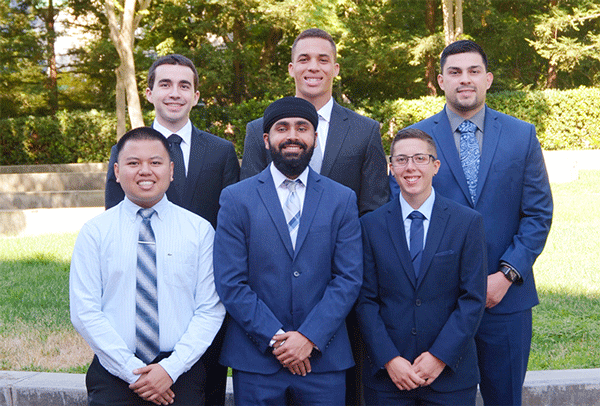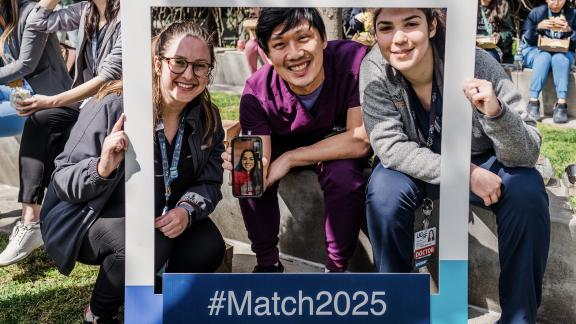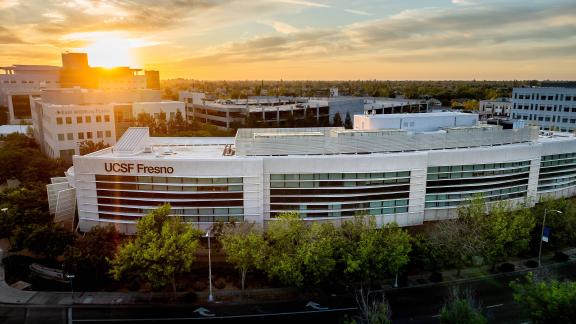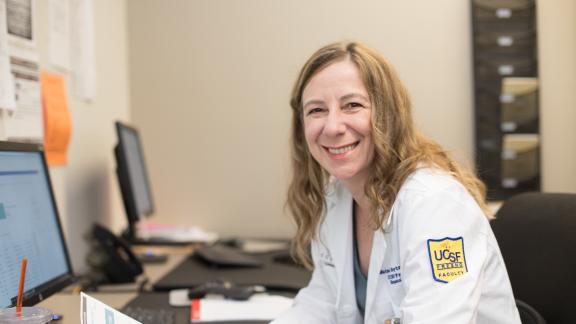
This back-to-school season, six freshly white-coated UC San Francisco medical students – all from the San Joaquin Valley – are pioneering a new community-focused program. They are the first class admitted to UCSF’s San Joaquin Valley Program in Medical Education (SJV PRIME), a program designed for future physicians who are committed to providing high-quality, culturally competent and accessible medical care that addresses the Valley’s unique health needs.
This month’s start of SJV PRIME comes at a critical time for California as the state faces a projected shortfall of up to 4,100 primary care clinicians in just 10 years, according to the California Future Health Workforce Commission. The San Joaquin Valley – which stretches from Stockton to Bakersfield – already has a severe shortage of physicians and is one of the fastest growing areas in the state. In addition, with about one-third of the region’s physicians at or near retirement age, the Valley will be hit especially hard by the shortage of doctors.
“The aim of SJV PRIME is to take students from the Valley, train them here, offer them residency training in the Valley with the hope they will stay to practice,” said Loren Alving, MD, a neurologist and director of SJV PRIME.
The program stems from a collaboration begun in 2011 among UC Merced, UCSF Fresno, the UCSF School of Medicine, and the UC Davis School of Medicine, with UC Davis serving as the medical degree-granting institution.
In July 2018, UCSF Fresno was approved as a branch campus of the consistently top-ranked UCSF School of Medicine by the Liaison Committee on Medical Education, the accrediting body for medical degree-granting institutions in the U.S. The designation made UCSF the degree-granting institution for SJV PRIME and paved the way for students to spend the bulk of their training at UCSF Fresno and other Valley locations.
With the branch campus approval came a flurry of activity to prepare for students admitted to the new SJV PRIME. A taskforce, co-chaired by Alving and Ann Poncelet, MD, also a neurologist and director of UCSF Academy of Medical Educators, was assembled.
“In just over a year, we had to develop various aspects of the four-year program to integrate with the BRIDGES curriculum (the name of the UCSF medical school curriculum),” said Alving.
BRIDGES is a completely updated curriculum that was launched by UCSF in 2016 to prepare physician-leaders to transform 21st-century health care. As UCSF medical students, SJV PRIME students spend the first 18 months at the main campus focusing on foundational and health system sciences and principles of discovery. They also learn about health issues impacting the Valley and remain connected to the region with intermittent periods spent learning and conducting research locally, such as with UC Merced faculty. After the initial 18 months, SJV PRIME students spend the remainder of their training – about two and a half years – at UCSF Fresno. Rotations take place at clinical sites like Community Regional Medical Center, Family HealthCare Network’s Ambulatory Care Center in Fresno, VA Central California Health Care System, University Centers of Excellence and other family medicine clinics in the Valley.
Alving credited Catherine Lucey, MD, vice dean for education at UCSF, Michael W. Peterson, MD, associate dean at UCSF Fresno, taskforce co-chair Poncelet, and everyone on the taskforce with being instrumental to the successful development of the program and consistent with the high-quality of the UCSF School of Medicine.
Community support will be critical to the success of SJV PRIME, said Alving. “We need enthusiasm to keep students here, community partners to engage with the students, and financial support – scholarships – to help students. Many of the students come from underserved backgrounds. Many are first-generation college students. Medical school is stressful enough without having to worry about being hundreds of thousands of dollars in debt.”
Read more about the students in the first UCSF SJV PRIME cohort.





